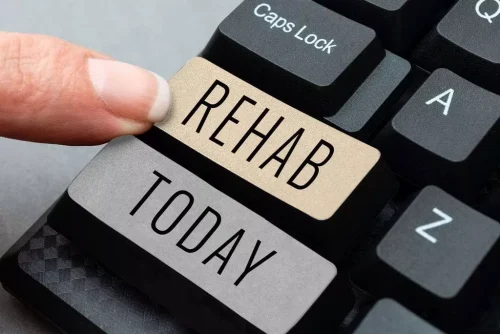
Furthermore, alcohol can make you focus too much on specific words or behaviors from other people. If you see someone cut in front of you in line for the bathroom at a bar or concert, you may react aggressively when you otherwise wouldn’t mind. When drinking, it becomes increasingly challenging to interpret information logically. These medicines can help reduce the negative side effects of detoxification and withdrawal. There is also a theory that the disinhibition that alcohol creates raises the risk of violent behavior.
Reduced consideration for consequences

By cultivating resilience and embracing a holistic approach to healing, individuals can break the cycle of anger and addiction, paving the way for a brighter and more hopeful future. By prioritizing personalized interventions, we can help individuals with healing and self-discovery. Through empathy alcoholic rage syndrome and support, we can create environments that nurture healthier relationships with both alcohol and emotions. Furthermore, compromised decision-making abilities and weakened impulse control can exacerbate aggressive behaviors, amplifying the expression of anger in alcohol-influenced situations.
Clarifying the distinctions between these emotional responses
If your behavior fits the description of an angry drunk, it may be difficult to admit you behaved that way under the influence. Many people whose behavior changes drastically with drinking have a hard time believing it when they’re sober. But the best choice for you and the people around you is to enter treatment and work to become a better person.
How to Seek Help for Co-Occurring Anger and Alcohol Addiction
Researchers were studying people in the Finnish population, of which more than 100,000 people have the genetic variation. A small 2015 study published in Translational Psychology investigated the role of this variation in impulsive and aggressive behavior while intoxicated (10). In rodent studies, glutamine is linked to heightened https://ecosoberhouse.com/ agitation and aggression during alcohol withdrawal (7). Additionally, repeated drinking may alter GABA receptors and even damage cells, causing reduced sensitivity to the body’s own relaxing neurotransmitter (8). Drinking can have a relaxing or anxiety-relieving effect by mimicking the “chill-out” effects of GABA.
Alcohol’s Negative Emotional Side: The Role of Stress Neurobiology in Alcohol Use Disorder
- As a whole, alcohol use naturally heightens emotions, and for people who are predisposed to aggressive tendencies, it can quickly make bad scenarios worse.
- If there are any concerns about content we have published, please reach out to us at
- Anyone who’s lived with an alcoholic parent, partner or other close family member understands all too well what happens when their loved one’s personality changes suddenly as soon as they have a drink or two.
Alcohol accentuates or promotes the mental state of the drinkers at the time of consumption, fueling negative emotions such as aggressive behavior or positive emotional outcomes such as gregariousness and warmth. Aggression is classified as impulsive, premeditated, and medically driven (Gollan et al., 2005). Unlike impulse-driven aggression, which is reflective of an agitated state of mind, premeditated aggression is a planned aggressive act (Martin et al., 2019). Some studies highlight the impairment caused by alcohol consumption on processing emotional faces.

Medication-assisted treatment
